Ahead of the Philadelphia Debate, Six Transgender Pennsylvanians Speak Out
As former President Donald Trump and Vice President Kamala Harris get set to take center stage at Tuesday's debate, Pennsylvania's trans community holds their breath.
With two days left before the first presidential debate in Philadelphia, issues like the economy, immigration, climate change and healthcare will likely take center stage.
In addition, transgender rights have become a central talking point for the Republican party, with former President Trump vowing to crack down on “transgender insanity,” and Project 2025 warning of the “toxic normalization of transgenderism.”
The state of affairs for the trans community in the United States is bleak: hundreds of anti-trans bills have swept through state legislatures—many of which have passed into law.
There are more than 1.6 million trans people in the U.S. and—according to a 2020 report—only 2 percent of them identify as Republicans. As a group, trans people experience higher rates of anxiety, depression and suicidal ideation. Trans people continue to experience higher violence and murder rates than cisgender people.
Uncloseted Media spoke with six trans people from different pockets of Pennsylvania—a swing state that has notoriously swayed elections. They spoke about their experiences living as themselves and about their hopes and fears ahead of the November election that they say will be a critical crossroads when it comes to their safety in America.
1. Stephanie Fritsch (she/her), Wiconisco, Dauphin County
*** In 2020, 53.6 percent of residents voted for Biden and 45.1 percent voted for Trump.
After years of experiencing homelessness following her transition in Las Vegas, Stephanie Fritsch moved to Wiconisco, Pa., a 784-person town in eastern Pennsylvania. Not long after moving, she says she was stopped by a police officer who asked whether she was a pedophile or a registered sex offender.
“The incident with the police officer made me upset and scared,” Fritsch says. “I felt I didn't have protection.” Uncloseted Media reached out to the local police department but they did not respond for comment.
Despite a rocky start, Fritsch, a former Republican who left the party after her transition, now “feels safe” in Wiconisco. She frequently attends local fairs, tractor pulls and Church-sponsored gun bingo, where contestants can win AR-15 rifles and 9mm pistols.
“I’m one of them,” Fritsch says. “We protect each other, we protect our own.”
To Fritsch—who says she’s the only openly trans person in town—these outings are an opportunity to change the hearts and minds of her neighbors.
“You get more by throwing out positive energy and love,” Fritsch says. “The locals are just like ‘wow, this woman, this crazy person, we don’t understand her, but she’s cool anyway.’”
While Fritsch, 60, is still “fiscally conservative,” she has become an activist for trans rights and was recently voted in as Wiconisco Township’s auditor. She uses her platform to try and convince locals that Harris is the better choice for president. “I’m able to engage in a friendly, country way with these Trump supporters,” she says.
Despite this, Fritsch has still experienced intense online harassment. She received one email from a stranger who called her a “creepy old transvestite” and said that if she is caught using the bathroom that matches her gender identity—something she has the legal right to do in Pennsylvania—she “will get [her] gay ass handed to [her] and [she] will leave that bathroom on a stretcher.” Fritsch says she reported the incident to state police, but that she never heard back. The Pennsylvania State Police did not respond for comment.
Her worst experience was with Kiwi Farms, an online forum notorious for harassing, doxxing and stalking trans people. Fritsch received death threats and users described her as “worse than animals” and a “fat old man” with “basement rapist redneck vibes.” A 2022 survey found that nearly 40 percent of trans Americans have experienced online harassment.
“Being a public transgender woman, my life is in jeopardy all the time,” Fritsch says, and will be voting for Harris “to save America, democracy and protect the transgender community.”
“For me, I’m here to stay,” she says. “I was born in this country, my father defended this country and I’m not leaving. This is my home.”
2. Neil Searle (he/him), Sharpsville, Mercer County
*** In 2020, 36.5 percent of residents voted for Biden and 62.4 percent voted for Trump.
For a 20-year-old trans man, Neil Searle feels lucky. When he was a teenager going to a small school in western Pennsylvania, where the town votes red and Searle says kids try to “act southern,” he was nervous to come out, so when people responded with support, he was pleasantly surprised.
“Nobody cares, and that’s the best thing I could ask for,” he says.
But in July of this year, just five minutes from his house, 14-year-old Pauly Likens’ body was found dismembered in a lake.
“Having a child murdered in my town is already terrifying, but a trans kid murdered is even more terrifying,” says Searle.
Homicide rates of trans people nearly doubled between 2017 and 2021, and a 2021 study found that trans people are over four times more likely to be victims of violent crimes. Searle says Likens’ murder exposed a lot of people’s true feelings about the trans community. At Likens’ vigil, Searle says a group of protestors showed up and made anti-trans remarks.
“It made me feel like I shouldn’t be so open about [being transgender], despite wanting to be.”
This transphobia has colored Searle’s views about the election. He has never considered himself a political person, however, through discussions with his local LGBTQ group, he’s learned more about Republican policies targeting trans youth, like attempts to ban gender affirming care, which—for him—was crucial for his mental health. He’s worried that if Trump wins, he will be less safe.
“I don’t feel very strongly for any particular candidate…But I guess I’ll be voting for whoever isn’t trying to ruin my life.”
3. Ciora Thomas (she/her), Pittsburgh, Allegheny County
*** In 2020, 59.6 percent of residents voted for Biden and 39.2 percent voted for Trump.
As a teenager sleeping on the streets of downtown Pittsburgh, Ciora Thomas, like many other black trans women, turned to survival sex work. While there were some nonprofit organizations working on providing resources at the time, Thomas says they were far from sufficient.
“We didn't have community organizations that were benefiting us in a way for us to thrive,” says Thomas.
She remembers one night sleeping on a park bench, right after being robbed following a meeting with a client. It was here Thomas decided enough was enough.
Thomas, 35, founded SisTers PGH, a Black and trans-led nonprofit that helps trans people find housing and other resources. Since then, the organization has grown and Thomas has witnessed trans women in Pittsburgh thrive in ways she has never seen before.
Still, there have been challenges. She says funds for trans-centric nonprofits have always been tight, with the current surge in anti-trans discrimination only making things harder.
“The reality is we’re still under-resourced,” Thomas says. “We are still not thriving in the way that [our cisgender counterparts] are thriving.”
While Thomas is hopeful for a Harris presidency to help fix some of these issues, she says Harris is “still a politician, and we’ve all been let down by politicians” and won’t be placing all of her eggs in that basket. She and her team are already considering backup plans if the election swings in Trump’s favor.
“What happens if Kamala doesn't win?” she says. “How would we adjust or survive?”
Thomas is particularly concerned about trans healthcare being on the line if Trump gets into office and says she and her team are thinking of “more innovative ways they can serve [trans people],” even with laws that would strip them of their rights.
“What I’m prepared to do is continue to stand in the margins and the cracks to catch those who are falling through.”
4. Scarlett Davis (she/her), Wellsboro, Tioga County
*** In 2020, 23.5 percent of residents voted for Biden and 74.7 percent voted for Trump.
One of Scarlett Davis’ biggest pieces of advice for trans women is that “when you transition, people will surprise you.”
Davis, 50, who works for Pennsylvania’s Department of Human Services and lives in a wooded area in Tioga County in northeastern Pennsylvania, remembers coming out to one of her best friends of 25 years.
While Davis’ friend was at first supportive, that changed when she started to consume misinformation about trans people on Fox News. Davis says the friendship ended when her friend told her that trans people needed to “leave the kids alone” and that they are “grooming” children.
Davis’ experience with people in town has also started to shift. Her social circles have “slowly started to break away” as anti-trans rhetoric in the U.S. has intensified.
Misinformation “is shaping public opinion on trans people,” says Davis. “We actually have a small community of trans people in this area but they don’t interact because they hide due to stigma. So without that opportunity of actually knowing a trans person, they’re going to believe [the misinformation].”
The same thing has happened at work. She says one co-worker would deadname her and told her that he doesn’t believe trans people exist and that he thinks she is “mentally ill.”
“Their opinion is becoming more solidified,” Davis says. “And they’ve got this pride behind it, like ‘not only do I know that you’re wrong, but it’s downright American of me—patriotic—to tell you how wrong you are.’”
Davis is worried about the presidential election, pointing to Project 2025 and Trump’s rhetoric about transgender people. She will be voting for Harris and hopes voters will turn up for people like her.
“The choices that we have, to me, are nothing less than the choice between good and evil.”
5. Rayden Sorock (he/him), Pittsburgh, Allegheny County
*** In 2020, 59.6 percent of residents voted for Biden and 39.2 percent voted for Trump.
Rayden Sorock says there are highs and lows to being a trans athlete. Sorock, 38, grew up playing in a girls’ hockey league, and says he finally found community when he joined an LGBTQ hockey team after moving to Pittsburgh 15 years ago.
Twenty-five states have passed laws banning trans students from participating in sports that match their gender identity, with one bill passing the Pennsylvania state legislature before it was vetoed by the state’s governor. Because of this, Sorock is getting increasingly worried for himself and his gender-nonconforming 6-year-old kid.
“Trans people have become a scapegoat and a boogeyman when we’re just trying to play sports,” says Sorock, who put on his first pair of ice skates when he was two-years-old and started playing competitively in fifth grade. While he says he isn’t affected by the rhetoric about trans athletes from celebrities like J.K. Rowling and politicians like Trump, it has a meaningful “trickle-down effect to your average parents with kids in sports.”
“It can be pretty terrifying to see how many people just fucking hate you,” Sorock says.
Now, seeing negative commentary about trans people on social media platforms like X—where he manages his hockey team’s account—that sense of unease has him feeling “always on guard.”
Sorock will be voting for Harris in November. Voting blue has always been practically a foregone conclusion for him, as he says the Democrats are the “one group talking about us in a humane way.”
6. Deja Lynn Alvarez (she/her), Philadelphia, Philadelphia County
*** In 2020, 81.2 percent of residents voted for Biden and 17.9 percent voted for Trump.
Deja Lynn Alvarez has a long history of public service. Now the deputy director of TPAC/WHCI, a trans advocacy organization, she’s also worked in Philadelphia’s Department of Public Health and has run for city council multiple times.
But through the 1990s and early 2000s, Alvarez was unable to find employment due to persistent discrimination and—with no legal workplace protections for trans people—she resorted to survival sex work, during which she she says she was “the victim of police and government abuse.” According to a study by the American Civil Liberties Union, trans people are more likely to be confronted, searched and insulted by police compared to cisgender people. This experience was what motivated her to fight for trans rights.
“I wasn't going to allow myself or my trans siblings to be treated that way anymore,” Alvarez says.
Over time, Alvarez, 53, says progress has been made. For example, in 2022, Philadelphia expanded legal protections for trans and gender-nonconforming youth to ensure “their environments are free from discrimination.” But she says this progress has been stymied since the Trump administration rolled back many of the rights they had fought so hard for.
A line that’s been repeated a lot this election season, both by advocates and by the Harris campaign itself, is “we won’t go back.”
As a Latina trans woman, Alvaraz is deeply familiar with what “going back” would mean for her and her community, as Project 2025 promises to remove existing anti-discrimination measures for trans people in employment, healthcare and beyond. She remembers countless stories of herself and her trans siblings needing to fight uphill battles to get even minimum-wage employment, and of constant workplace harassment for those few who did manage to get jobs.
Alvarez herself has been on the receiving end of healthcare discrimination. On a 2005 trip to Georgia, she came down with a 103-degree fever and pain so bad she felt like her “skin was on fire.” She went to the emergency room, where she says her doctor refused to treat her.
“As soon as I said I was trans, the doctor yanked his hand off of my leg, took two steps back, whispered in the nurse's ear and walked out of the room,” Alvarez says. “The nurse looked at me and just said ‘the doctor suggests you go see your doctor when you get back home to Philadelphia.’”
All of this has led her to focus her activism on prioritizing the needs of those most marginalized. With the upcoming election pitting Kamala Harris—who has held nationwide calls with trans people to listen to the community’s top concerns—against a Republican party that has made anti-trans talking points key to its strategy, Alvarez says the choice is clear.
“We're being used in such a way, for so much hate, so much vitriol and bigotry, that I think it's hard for most people to even comprehend it or understand.”
Additional reporting contributed by Spencer Macnaughton, Abbie Thompson and Tom Sayers.
If objective, nonpartisan, rigorous, LGBTQ-focused journalism is important to you, please consider making a tax-deductible donation through our fiscal sponsor, Resource Impact, by clicking this button:





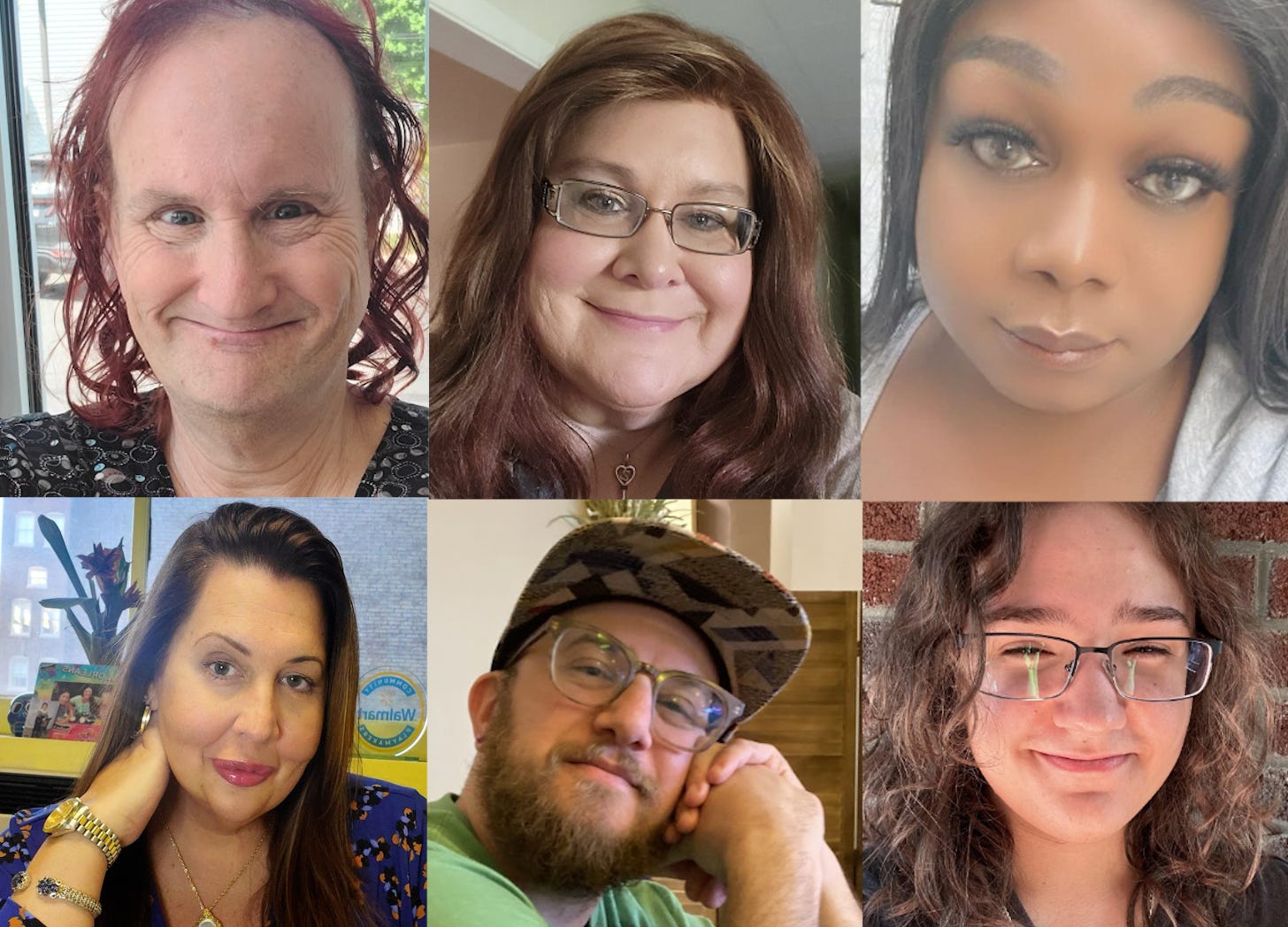
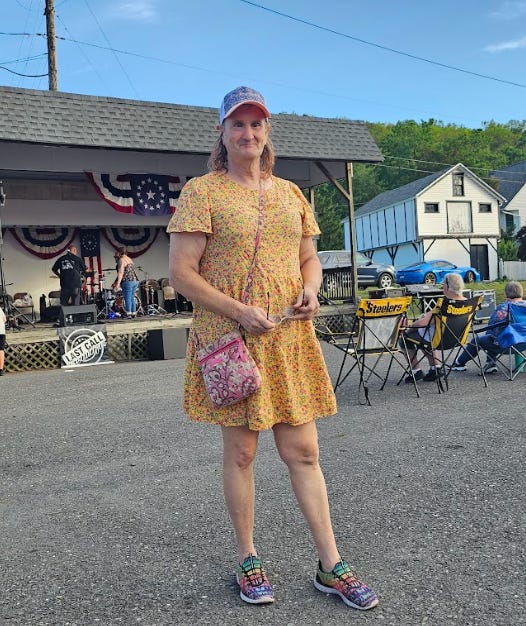


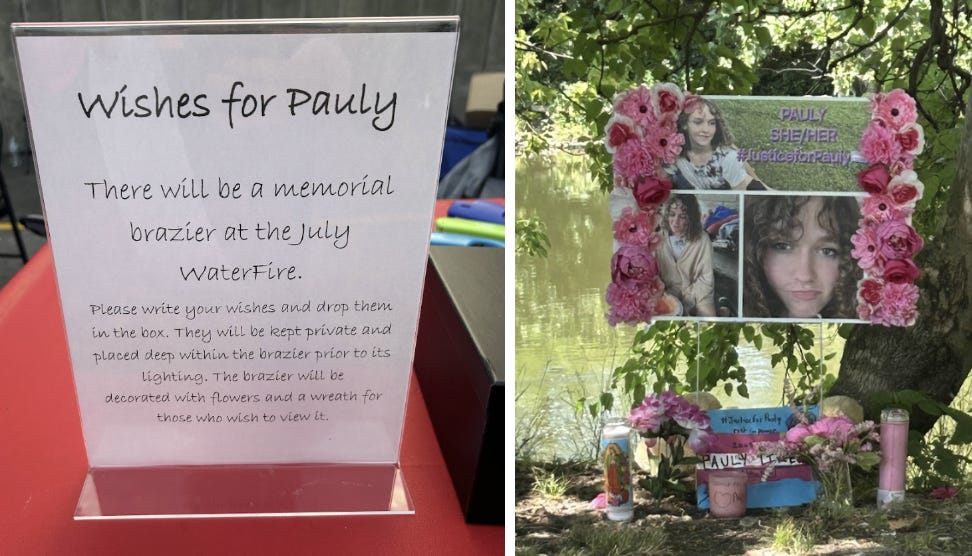

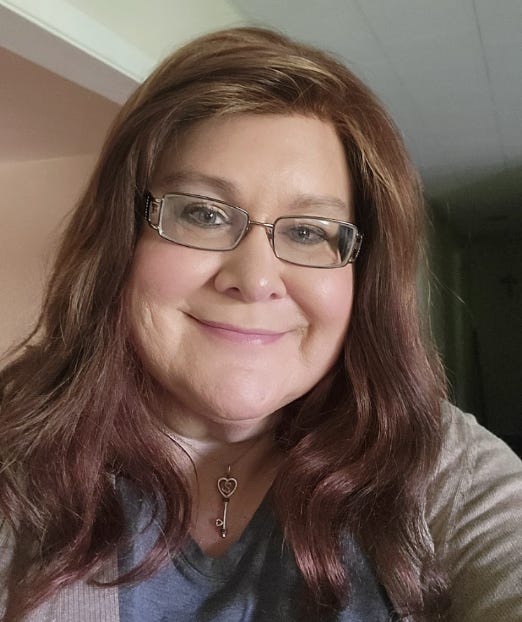


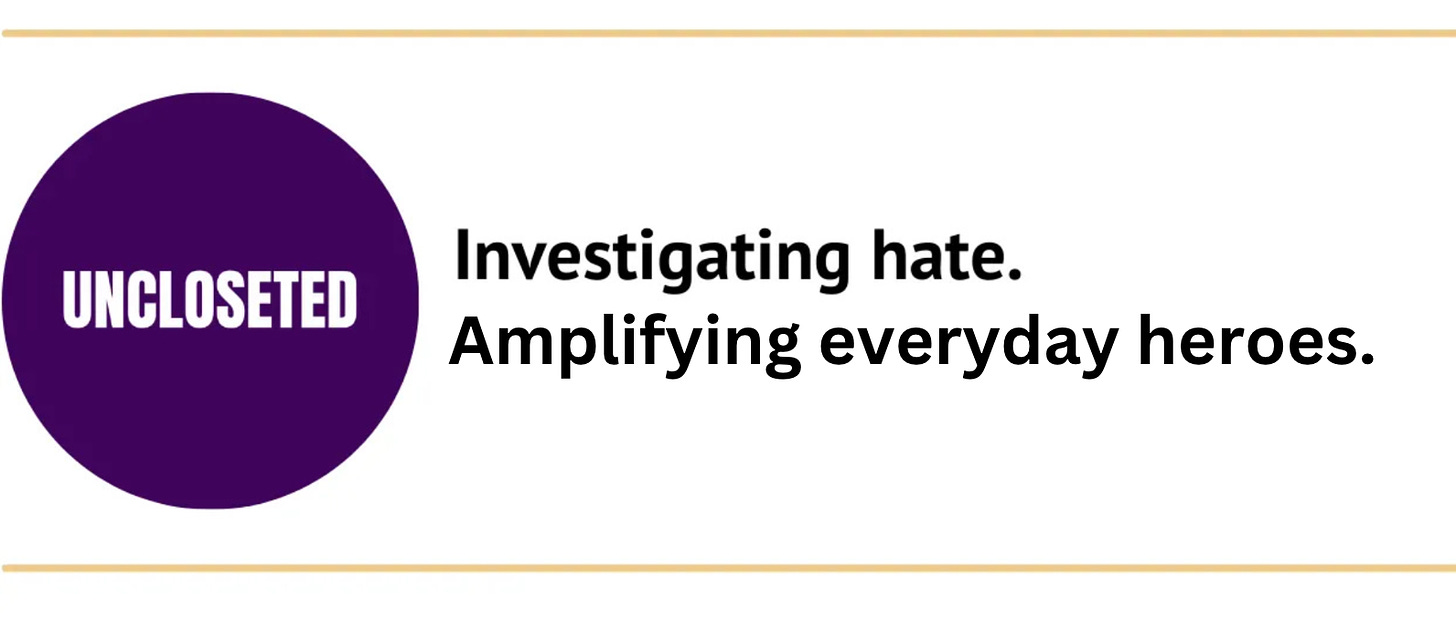

Thanks for this deeply thoughtful and vividly detailed report that unfolds the personal behind the abstract stories that many of us know. This quality of writing and reporting makes the complexity of living in Uncloseted world very personal and immediate. This is a great resource for the Harris campaign and for the rest of us who are doing all we can to lift up and bring home the crisis of these disturbing political times. Congratulations Uncloseted - a great start!